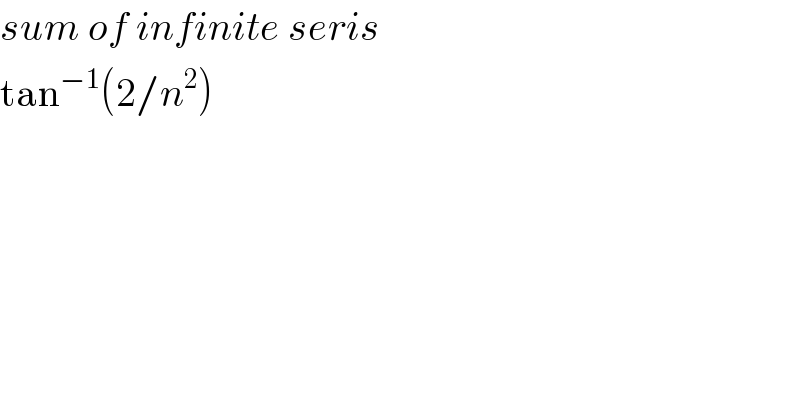
Question and Answers Forum
Question Number 26812 by amit96 last updated on 30/Dec/17

Answered by prakash jain last updated on 31/Dec/17

| ||
Question and Answers Forum | ||
Question Number 26812 by amit96 last updated on 30/Dec/17 | ||
 | ||
Answered by prakash jain last updated on 31/Dec/17 | ||
 | ||
| ||